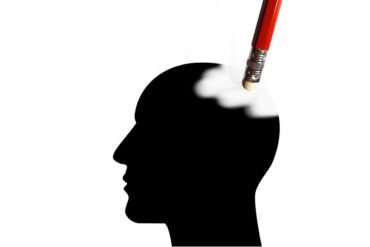Coping with Bipolar Disorder in Adolescence

Table of Contents
- Understanding Bipolar Disorder in Adolescence
- Identifying Early Warning Signs
- Creating a Supportive Environment
- Effective Treatment Options
- Promoting Positive Coping Strategies
Understanding Bipolar Disorder in Adolescence
Bipolar disorder is a psychological condition characterized by extreme mood swings, ranging from manic episodes of high energy and euphoria to depressive episodes of sadness and hopelessness. While this disorder can affect individuals of any age, it often emerges during adolescence, making it crucial for parents, caregivers, and educators to understand its symptoms and provide appropriate support.
During adolescence, young people experience many physical, emotional, and cognitive changes, making it challenging to detect bipolar disorder. It is essential to differentiate between typical teenage mood swings and potential signs of bipolar disorder.
Common symptoms of bipolar disorder in adolescence include:
- Intense mood swings that occur several times a day
- Aggressive behavior or irritability
- Decreased need for sleep
- Uncharacteristic impulsivity or risk-taking behavior
- Excessive increase in self-esteem or grandiosity
- Loss of interest in previously enjoyed activities
- Feelings of guilt, worthlessness, or hopelessness
- Difficulty concentrating or making decisions
- Changes in appetite and weight
- Recurrent thoughts of death or suicide
Diagnosing bipolar disorder in adolescence requires a comprehensive evaluation by a qualified mental health professional. Treatment typically involves a combination of medication and therapy, such as cognitive-behavioral therapy or dialectical behavior therapy.
Supporting adolescents with bipolar disorder is crucial for their well-being and academic success. Here are some strategies:
- Encourage open communication and active listening
- Provide a stable and structured environment
- Help establish consistent daily routines
- Assist with medication management and therapy appointments
- Encourage healthy coping mechanisms, such as exercise or creative outlets
- Collaborate with school personnel to create an individualized education plan
- Offer emotional support and reassure the adolescent that their feelings are valid
- Encourage participation in support groups or therapy with peers
- Monitor for warning signs of depressive or manic episodes
- Self-care is crucial for caregivers to avoid burnout
Always consult with a mental health professional for proper diagnosis, guidance, and treatment options. With the right support, adolescents with bipolar disorder can manage their symptoms, thrive academically and socially, and lead fulfilling lives.
Identifying Early Warning Signs
Coping with bipolar disorder in adolescence can pose significant challenges for both the individual and their loved ones. However, recognizing and addressing the early warning signs of bipolar disorder is crucial in managing this condition effectively. By becoming familiar with these indicators, you can take proactive steps to ensure timely intervention and support. Here are some common early warning signs to be mindful of:
- Mood swings: Adolescents with bipolar disorder often experience severe and recurrent shifts in mood. These episodes may involve periods of intense happiness, known as manic episodes, and periods of extreme sadness or depression.
- Changes in sleep patterns: Pay attention to noticeable alterations in sleep patterns. During manic episodes, individuals may require less sleep, exhibit restlessness, or have racing thoughts. Conversely, during depressive episodes, they might struggle with excessive sleepiness or insomnia.
- Irritability and agitation: Adolescents with bipolar disorder may display increased irritability, aggression, or agitation, particularly during manic episodes.
- Difficulty concentrating: If you notice a decline in your child’s ability to concentrate or their academic performance starts to suffer, it might indicate the onset of bipolar disorder.
- Loss of interest: A sudden lack of interest or pleasure in activities they once enjoyed can be an early warning sign of depression, a common component of bipolar disorder.
- Changes in appetite: Keep an eye out for significant changes in appetite or weight. Bipolar disorder can lead to marked changes in eating behaviors.
- Social withdrawal: Adolescents facing bipolar disorder may withdraw from family and friends, preferring isolation over social interactions.
- Thoughts of self-harm: Be vigilant for any signs of self-harm or suicidal ideation. If your child expresses these thoughts, seek professional help immediately.
Recognizing early warning signs is the first step toward helping adolescents cope with bipolar disorder. If you identify any of these signs or have concerns about your child’s mental well-being, consult a mental health professional for an accurate diagnosis and appropriate treatment. Remember, timely intervention is vital in managing bipolar disorder effectively and improving the quality of life for those who experience it.
Creating a Supportive Environment
When dealing with bipolar disorder in adolescents, it is crucial to establish a supportive environment that promotes understanding, empathy, and stability. By implementing the following strategies, families and caregivers can enhance the well-being and quality of life for teenagers coping with bipolar disorder:
- Educate yourself: Learn about bipolar disorder, its symptoms, and treatment options. Understanding the condition will help you provide better support and communicate more effectively with your teen.
- Encourage open communication: Create a safe space for your teen to express their emotions and concerns. Encourage them to share their experiences and validate their feelings without judgment or criticism.
- Establish routines: Structure and consistency are vital for adolescents with bipolar disorder. Create a daily schedule that includes regular sleeping patterns, meals, activities, and medication routines, promoting stability and minimizing disruptions.
- Encourage self-care: Teach your teenager the importance of self-care practices, such as engaging in physical exercise, getting enough sleep, and eating a balanced diet. Encourage them to practice relaxation techniques, such as deep breathing or mindfulness, to manage stress.
- Involve professionals: Collaborate with mental health professionals experienced in treating bipolar disorder in adolescents. They can provide therapy, medication management, and guidance tailored to your teen’s specific needs.
- Support adherence to treatment: Help your teenager stay consistent with their treatment plan, including attending therapy sessions, taking prescribed medications, and following through with any lifestyle changes recommended by healthcare professionals.
- Provide social support: Encourage your teen to maintain connections with friends, participate in activities they enjoy, and engage in support groups or online communities specifically for young individuals with bipolar disorder. These connections can provide a sense of belonging and reduce feelings of isolation.
Remember, creating a supportive environment requires patience, understanding, and flexibility. It’s vital to adapt strategies that work best for your teenager’s unique needs while seeking ongoing professional guidance. By fostering an environment that prioritizes care, communication, and support, you can help your adolescent effectively manage bipolar disorder and improve their overall well-being.
Effective Treatment Options
Coping with bipolar disorder during adolescence can be challenging, but with the right treatment, it is possible for teenagers to lead fulfilling lives. With early intervention and ongoing support, individuals with bipolar disorder can manage their symptoms and reduce the impact on their daily lives. Here are some effective treatment options:
- Medication: Medication plays a crucial role in managing bipolar disorder. Mood stabilizers such as lithium, anticonvulsants like valproate, and atypical antipsychotics are commonly prescribed. These medications help reduce mood swings and control manic or depressive episodes. It is important for adolescents to take medication as prescribed and regularly visit their psychiatrist for adjustments.
- Therapy: Therapy is an integral part of bipolar disorder treatment. Cognitive-behavioral therapy (CBT) enables individuals to identify and change negative thought patterns and behaviors. Family-focused therapy involves educating family members about the illness, improving communication, and developing strategies to cope with challenges that may arise. Interpersonal and social rhythm therapy (IPSRT) helps establish daily routines and stabilize sleep patterns.
- Lifestyle Changes: Adopting a healthy lifestyle can greatly impact the management of bipolar disorder. Regular exercise, sufficient sleep, and a balanced diet contribute to overall well-being. Avoiding alcohol and drug use is crucial, as substance abuse can worsen symptoms and interfere with medication effectiveness.
- Support Network: Building a strong support network is vital for adolescents with bipolar disorder. Joining support groups or engaging in peer support helps individuals connect with others who understand their experiences. Family and friends also play a crucial role in providing emotional support and assisting with coping strategies.
- Education and Psychoeducation: Learning about bipolar disorder and its management empowers individuals and their families. Psychoeducation involves understanding the illness, recognizing early warning signs of mood swings, and developing relapse prevention strategies. Education also helps reduce stigma and provides tools for effective coping.
Remember, it is important to work closely with mental health professionals to find the most suitable treatment plan for each individual. With the right combination of medication, therapy, and support, adolescents with bipolar disorder can effectively cope with their symptoms and lead fulfilling lives.
Promoting Positive Coping Strategies for Coping with Bipolar Disorder in Adolescence
Adolescence can be a challenging time for anyone, but it can be particularly difficult for those struggling with bipolar disorder. Bipolar disorder is a mental health condition characterized by extreme mood swings ranging from manic highs to depressive lows. However, with the right coping strategies and support, adolescents can effectively manage their symptoms and lead fulfilling lives. Here are some positive coping strategies that can help adolescents cope with bipolar disorder:
- Educate yourself: Learning about bipolar disorder is an important first step in managing the condition. Understanding the symptoms, triggers, and treatment options can empower adolescents to take control of their mental health.
- Create a support network: Building a strong support network is crucial for adolescents with bipolar disorder. This can include trusted friends, family members, or mental health professionals who can offer guidance, encouragement, and a listening ear.
- Maintain a consistent routine: Establishing and adhering to a daily routine can provide stability and structure for adolescents with bipolar disorder. This includes regular sleep patterns, meal times, exercise, and medication schedules. A consistent routine can help manage mood swings and reduce stress.
- Practice stress management techniques: Stress can exacerbate symptoms of bipolar disorder. Encourage adolescents to find healthy ways to manage stress such as practicing mindfulness, deep breathing exercises, engaging in hobbies, or participating in physical activities.
- Encourage open communication: Adolescents should be encouraged to express their feelings and concerns openly. Sharing their experiences with trusted individuals can alleviate emotional strain and reduce the sense of isolation often associated with bipolar disorder.
- Ensure proper medication adherence: Medication is often prescribed to manage the symptoms of bipolar disorder. It is crucial for adolescents to take their medication as prescribed, and for parents or caregivers to monitor adherence to the prescribed treatment plan.
- Promote healthy lifestyle choices: A balanced diet, regular exercise, and sufficient sleep can greatly contribute to overall well-being. Encourage adolescents to adopt healthy lifestyle habits as they can have a positive impact on their mental health.
- Monitor warning signs: Teach adolescents to recognize the warning signs of a mood swing. Being aware of these signs can help them take action early and implement coping strategies to prevent a full-blown episode.
Remember, coping with bipolar disorder in adolescence is a journey that requires patience, understanding, and ongoing support. By implementing these positive coping strategies, adolescents with bipolar disorder can better manage their condition and improve their quality of life.


























